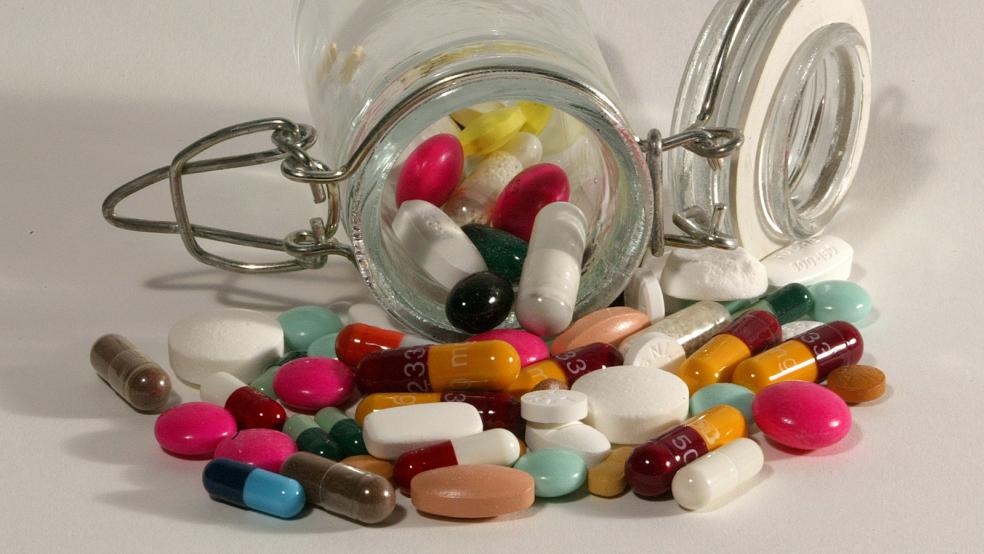There was a time when major pharmaceutical companies were buffeted with harsh civil and criminal penalties for marketing their drugs for purposes other than approved by the Food and Drug Administration.
Among the more celebrated cases involving the “off-label” promoting and sale of drugs for questionable or unauthorized use: Eli Lilly agreed to pay $1.4 billion in January 2009 for promoting the anti-psychotic drug Zyprexa for behavioral problems among children and the elderly. And just eight months later, Pfizer reached a $2.3 billion settlement with the Justice Department for illegally promoting four different drugs.
Related: Government Penalties Against Major Drug Companies Have Sharply Declined
But in recent years, the pendulum has swung back in favor of the drug companies and their lawyers in the courtroom. Just last week, a Texas jury ruled in favor of Abbott Laboratories in a $200 million False Claims Act trial involving the off-label marketing of stents to prevent blockages of blood vessels and efforts to defraud Medicare.
The company’s lawyers convinced jurors after a two-week trial that Abbott acted reasonably by promoting its stents to treat common blood vessel problems, although the FDA had approved them primarily for treating only uncommon bile duct blockage problems. What’s more, the Department of Justice didn’t take part in the whistleblower case, which some argued casted doubt on the credibility of the case.
According to an analysis by the legal service publication Law360, the Abbott case is the latest in a long string of victories by pharmaceutical companies dating back to December 2012. That’s when the U.S. Second Circuit Court of Appeals for New York, Connecticut and Vermont vacated the criminal conviction of Alfred Caronia, a sales representative who had allegedly misrepresented the authorized uses of Xyrem, a drug for drowsiness and narcolepsy.
Related: The Feds Finally Make a Move on Soaring Drug Prices
The appeals court ruled that the conviction was not permissible because it violated Caronia’s First Amendment right to free speech. That proved to be a turning point for the drug industry, which subsequently scored other big victories, including cases brought against Amarin Pharma Inc., Pacira Pharmaceuticals Inc. and Vascular Solutions Inc.
“It is fair to say that the tide has really shifted in terms of the off-label theory,” Laurence J. Freedman, a Washington, D.C. lawyer and expert on healthcare litigation, told the legal services publication.
Shayne C. Stevenson, a lawyer who has brought cases against Medtronic Inc. and other medical device and drug companies, told Law360 that it’s unfortunate a verdict like the one in Texas will be used by defense lawyers “to advise their client that they might be able to get away with this kind of behavior.”
By law, drug manufacturers cannot advertise or promote their products for “off-label” use although doctors may prescribe drugs outside of their intended use as determined by the FDA. For example, some drugs intended for cancer victims had been found to control psoriasis; other drugs that lower blood sugar in diabetics help some people without the disease lose weight.
Nevertheless, the federal regulations were implemented to protect patients from the use of drugs that have not been rigorously tested—a costly process that drug companies can avoid if doctors prescribe the drug for “off label” use.
Related: Extreme Rise in Some Drug Prices Reaches a Tipping Point
Over the years, federal authorities have taken drug manufacturers to court for illegally promoting their products, typically through the federal False Claims Act and complaints from whistleblowers. During the early years of the Obama administration, drug companies were forced to pay out billions in settlements for violation of the federal law, but that has significantly tapered off in recent years.
A recent report by Public Citizen, a consumer watchdog group, found that federal fines connected to unlawful promotion of drugs plummeted by 90 percent during 2014 and 2015, compared with the 2012-2013 period.
Only $2.4 billion in federal financial penalties were recovered in 2014 and 2015, according to Public Citizen, compared with $8.7 billion recovered in 2012 and 2013. At the same time, states recorded the fewest number of settlements – just 20 – since the 2006-2007 period.
| Drugs commonly prescribed off-label* | |
| Specific drug, type of drug | Examples of off-label use** |
| Aripiprazole (Abilify), antipsychotic | Dementia, Alzheimer’s disease |
| Tiagabine (Gabitril), antiseizure | Depression |
| Gabapentin (Neurontin), antiseizure | Nerve pain caused by diabetes, migraines, hot flashes |
| Topiramate (Topamax), antiseizure, in combination with phenteramine for weight loss | Bipolar disorder, depression, nerve pain, alcohol dependence, eating disorders |
| Risperidone (Risperdal), antipsychotic | Alzheimer’s disease, dementia, eating disorders, post-traumatic stress disorder |
| Trazodone (Desyrel), antidepressant | Insomnia, anxiety, bipolar disorder |
| Propranolol (Inderal), high blood pressure, heart disease | Stage fright |
| Sildenafil (Viagra), erectile dysfunction | To enhance sexual performance in people not diagnosed with erectile dysfunction, to improve sexual function in women taking certain antidepressants |
| Quetiapine (Seroquel), antipsychotic | Dementia, Alzheimer’s disease, obsessive-compulsive disorder, anxiety, post-traumatic stress disorder |
| SSRI antidepressants such as paroxetine (Paxil) and sertraline (Zoloft) | Premature ejaculation, hot flashes, tinnitus (ringing in the ears) |
| Prazosin (Minipress), high blood pressure | Post-traumatic stress disorder |
| Amitriptyline (Elavil), antidepressant | Fibromyalgia, migraines, eating disorders, pain after shingles infection |
| Bevacizumab (Avastin), certain types of cancer | Wet age-related macular degeneration (eye disease) |
| Statins such as atorvastatin (Lipitor), simvastatin (Zocor), high cholesterol in adults, children with an inherited cholesterol condition | Rheumatoid arthritis, to lower cholesterol in children who lack the inherited condition |
| Clonidine (Catapres), high blood pressure | Smoking cessation, hot flashes, attention deficit/hyperactivity disorder (ADHD), Tourette’s syndrome, restless legs syndrome |
|
* Not meant to be a comprehensive list. Many of the drugs listed here are also available as generics. |
|





